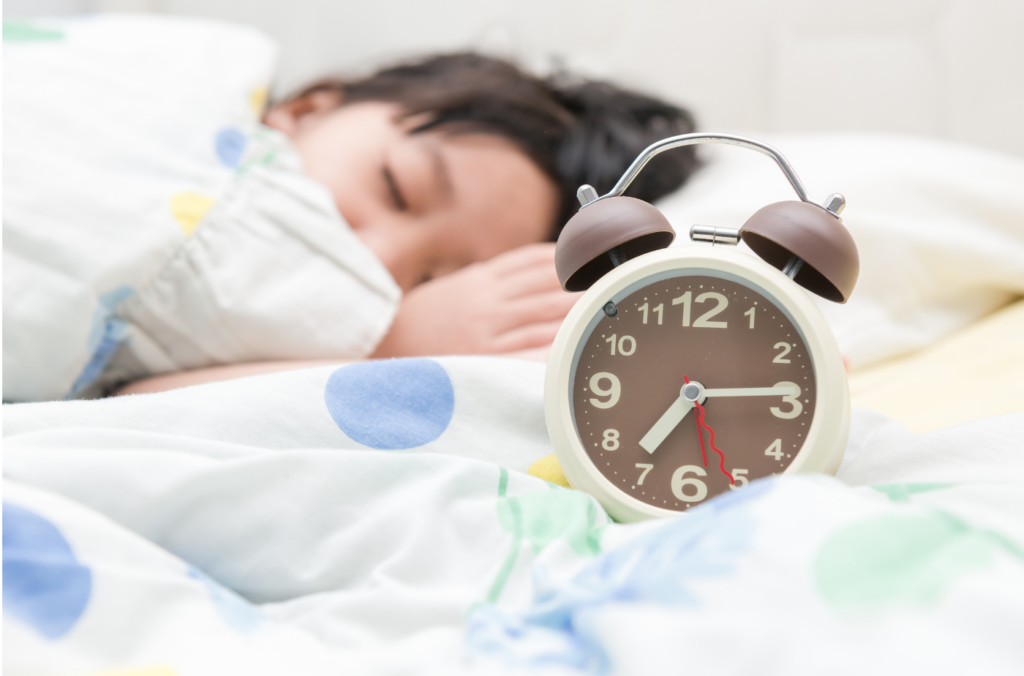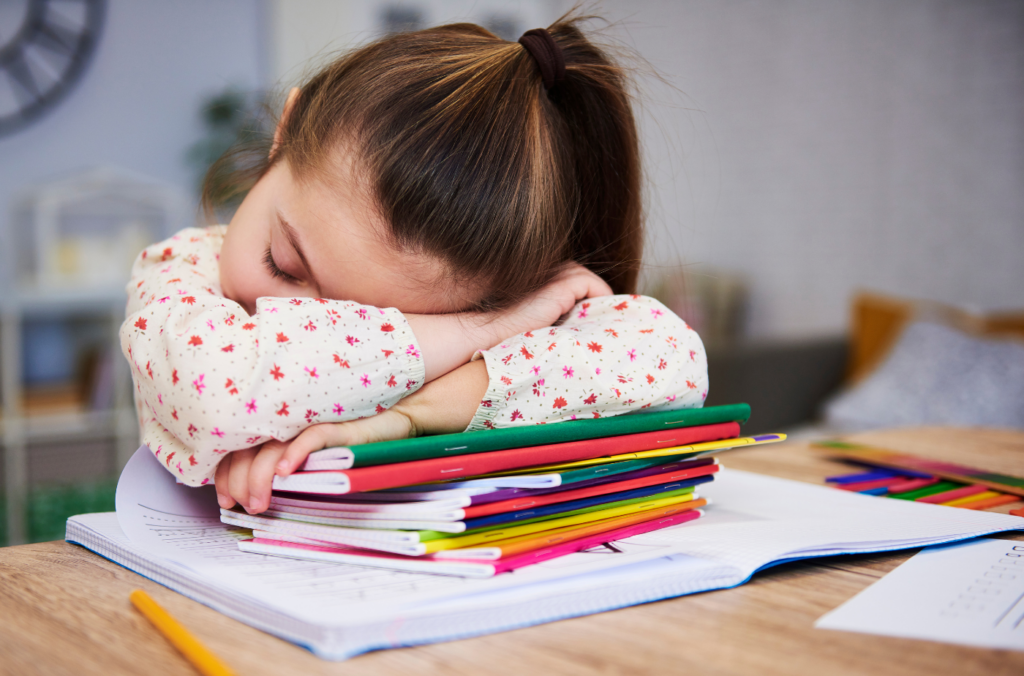Bedtime for children is handled differently in many families and there is no one specific time that works for everybody. One thing that is for sure, is that there should be certain regularity in it, to ensure enough sleep every day. Here we explain the importance of a regular sleep schedule and what happens when children lack sleep. Also, how to recognize when your child is too tired and should get some sleep. It is so important for everyone to get enough sleep so that our brain and body can function at their optimal level.

How many hours of sleep do children need?
The amount of sleep that a child needs depends on their age. When healthy adults need between 7 and 9 hours of sleep daily, then children need significantly more. Here is a quick overview of how many hours of sleep children of a certain age need:
| Infants (4 to 12 months old) | 12-16 hours |
|---|---|
| Toddlers (1 to 2 years old) | 11-14 hours |
| Children (3 to 5 years old) | 10-13 hours |
| Children (6-12 years) | 9-12 hours |
| Teenagers (13-18 years old) | 8-10 hours |
So as you can see, children and even teenagers need significantly more sleep than adults. Insufficient sleep can lead to multiple problems like frequently having negative emotions, problems with learning, and delayed brain development. It can also lead to weight gain, as the body is trying to get the energy from somewhere else, like food, which can lead to overeating. Lack of sleep also compromises the immune system, which will lead to your child being sick more often. As you can see, children getting enough sleep is very important for their overall health and performance.
How to tell when your child is too tired?
Some parents tend to wait and see when their child is tired to put them to bed, but that is not how children work. When adults cannot wait to get to bed and get cozy, children see it as if they are missing out. They won’t let you know that they are tired because they think that they are going to miss all the fun stuff, while they are asleep. So how can you tell when your child is getting tired? Well, one pretty simple sign is yawning and rubbing their eyes, but by then it might be too late.
According to Juniapharma, there are five emotional and five physical signs, that are a dead giveaway, that your child is too tired. Some of them include irritability, clinginess, hyperactivity, and refusing food, which they usually love. Sleepsense also talks about “witching hour”, when a child starts acting ridiculously fussy and irrational, which usually happens between the hours of 4 and 6 PM. When you notice any of those signs on your child, it usually means, that they are not getting enough sleep, and it is time to put them down for a nap.
And when there are no signs visible, then congratulations! You are doing a great job with your child, and they are getting enough sleep.

How do regular bedtime and enough sleep affect their brain development and schoolwork?
As stated by Sleep Foundation, as many as 72% of high school students, 57% of middle school students, and 25% of younger children are believed to suffer from insufficient sleep. Research shows that most human brains reach their full development by the age of 25. These rates vary among individuals and between men and women, but that is the general age for the brain to reach its peak. From that, we can say, that sleep is very important also for teenagers, to whose sleep we usually don’t pay as much attention.
Not getting enough sleep can have a serious effect on schoolwork, as it reduces focus and attention. As it’s harder for a sleep-deprived brain to focus, it will also have a negative effect on memory. Lack of sleep can temporarily reduce a child’s ability to organize, solve problems and plan things. According to Studiosity, a healthy amount of sleep is vital for children and teens, as memory and learning are consolidated during sleep. For adolescents, this mostly happens during REM sleep, and it allows us to remember everything we’ve learned that day and recollect our experiences.
How do get them to sleep longer on weekends?
Sometimes you have a very busy week and you just cannot get the children to bed at the right time. Then the weekends should be the time to get some extra sleep to be well-rested for the upcoming week. Unfortunately, younger children still tend to wake up even earlier and be cranky before bedtime. Here are some tricks to try and get them to sleep a little bit extra on those Sunday mornings. Firstly, it really helps to have blackout curtains, so that your child won’t wake up with the sunrise. Secondly, you can try and cuddle your child so that the safety and warmth of a parent, will make them go back to sleep. Lastly, try a white noise machine or app to cancel out all the noises that might alert the child.

In conclusion, it really helps your child to have a regular sleeping schedule to follow every day. It should be followed seven days a week so that their rhythm doesn’t get disturbed. Getting enough sleep is mainly vital for your child’s mental health and brain development. It can be frustrating when children don’t want to go to sleep because they feel like they are missing out. As an informed parent, you know that you are doing this for their benefit. So don’t feel discouraged just because your child says that others can stay up late.


















